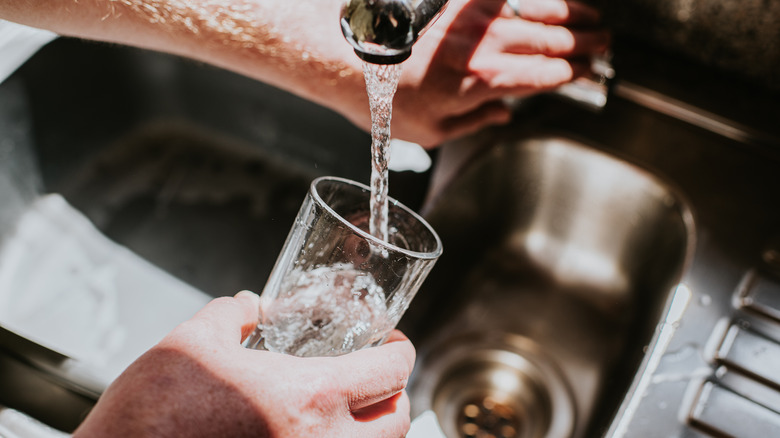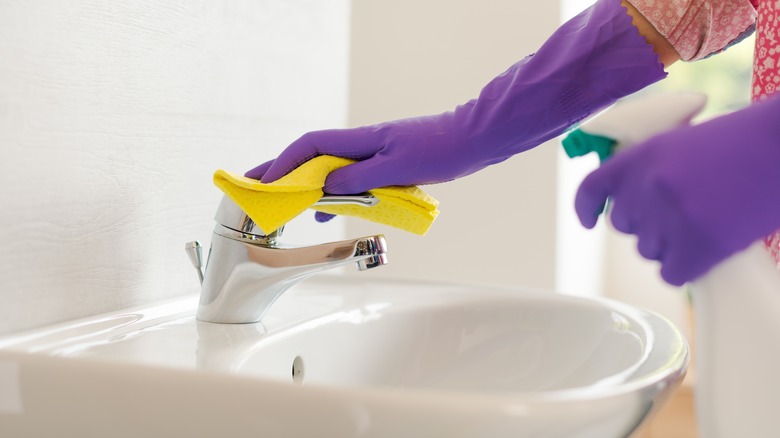The Pantry Staple That Can Easily Clean Your Gunked-Up Kitchen Faucet
A kitchen faucet being packed with gunk isn't something anyone wants to think about as they fill a glass of water. That's why most everyone's dream kitchen has a faucet that doesn't need cleaning. (It's only a dream.) If you're stuck with a normal faucet that does need de-gunked, there's a kitchen cleaning magic trick that involves little more than distilled white vinegar, a plastic bag, and an elastic tie (a hair tie will work fine).
Inside the bag, pour equal parts distilled white vinegar and water before fitting it over the faucet head and using the elastic band to hold it in place. Leave the bag over the faucet for 30 to 60 minutes and let it rid the surface of build-up and ick. Once the time is up, remove the plastic bag (carefully) and gently wipe down the faucet to remove any loosened bits that are still hanging on. This trick will work for any faucet or shower head in your home to remove the dreaded calcium buildup. However, you might want to make sure your faucet can handle it. Stainless steel faucets are generally okay to use this cleaning solution on, but fixtures with gold, bronze, or nickel finishes might not respond well to the high acidity of vinegar. Proceed with caution or opt to scrub the faucet more frequently with a gentler dish soap and a scrubbing brush to remove and prevent buildup instead.
How often you should clean a faucet can vary
The head of a faucet should be cleaned at least twice a year unless you live in an area with particularly hard water. If so, it may need to be cleaned once per quarter. Calcium buildup (aka limescale) is a result of minerals in the water coming out of the faucet and sticking to the surface. Over time, this creates the nasty buildup we all despise. Hard water contains more of these minerals, which is why buildup will happen faster in hard water areas.
A high presence of calcium and magnesium are a good indicator that a water source is hard water. Due to these minerals being non-toxic, there's no legal limit on how hard water can be in a certain area. Just because it isn't toxic doesn't mean the buildup on the faucet should stay, though. This buildup (and a dirty faucet in general) creates the perfect breeding ground for bacteria that can make you and anyone else in your home sick. A good habit to form when you need to clean your faucet is to use this bag of vinegar and water trick before you start your nightly kitchen shut-down. Once you're finished tidying up, remove the bag and go about your evening with a fresh, clean home.

